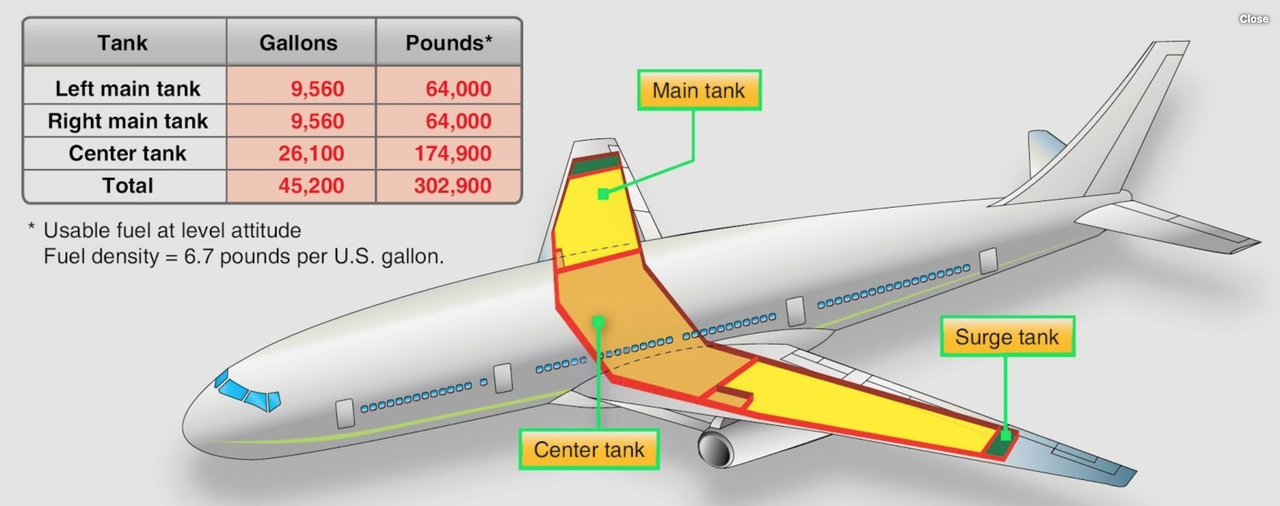Half Of Undelivered 737 MAX Jets Inspected Have ‘Debris’ Found In Fuel Tanks
Update (Feb 22): Last week an internal Boeing memo detailed how inspectors found debris in the fuel tanks of several 737 MAX aircraft that are sitting in storage and waiting to be delivered to airlines. Updated reports now show the problem is much more widespread than previously thought.
Reuters notes that 35 MAX planes had foreign-object debris (FOD) in the fuel tanks. A Boeing spokesman confirmed this on Friday:
“We are taking steps to make sure we eliminate FOD from any and all aircraft. This is unacceptable and won’t be tolerated on any Boeing aircraft when it’s delivered to the customer,” Boeing said in an emailed statement.
A source told Reuters that at least 50% of undelivered MAX jets inspected have FOD in them.
Industry officials told The Wall Street Journal that the scale of the problem is widespread. They said Boeing had inspected 50 of the 400 MAX planes waiting for delivery once ungrounding occurs, indicating that some jets had rags, boot coverings, tools, and other debris in the fuel tanks.
The FOD problem on the MAX was first reported Tuesday on Scott Hamilton’s Leeham.net aviation site:
“There’s a systemic issue with Boeing’s quality control that hasn’t been corralled yet,” said Hamilton in an interview.
“This is not related to the MAX crashes or exclusively a MAX issue. Boeing has these FOD issues on other airplane programs.”
Compound the FOD issue with a string of setbacks stretching almost one year since the grounding of the aircraft, and it has just been one disaster after another for Boeing.
On Friday, a new twist in the Boeing saga developed when NYT reported that federal prosecutors were examining whether or not the aerospace company knowingly misled the FAA while seeking approval for the 737 Max.
Prosecutors have questioned several Boeing employees in front of a federal grand jury whether a top Boeing pilot, Mark Forkner, lied to the FAA about the capabilities of the then-new MCAS airplane software.
Airlines have been aware of the new setbacks and pushed out MAX return to service dates out to late summer and or even fall.
Southwest said it is extending its MAX flight cancellations through August 20, the largest US airline (by available seat miles) United Airlines, also said it was pulling the MAX from its schedule until September 4.
New setbacks could push the grounding out even further. The impacts on the US economy are tremendous.
* * *
With airline after airline pushing back their ‘return-to-service’ dates based on Boeing’s total lack of clarity on the path forward for the 737 MAX, the troubled aircraft maker (and the troubled aircraft) now faces more problems.
According to an internal memo, seen by Reuters, Boeing found debris that could pose potential safety risks in the fuel tanks of several 737 MAX aircraft that are in storage and waiting to be delivered to airlines.
To be clear about what ‘debris’ means, Reuters details that:
“an industrial term for rags, tools, metal shavings and other materials left behind by workers during the production process.”
And notes that this ‘debris’ problem has been a quality control issue for various Boeing aircraft, such as its KC-46 tankers.
Foreign-object debris (FOD) “is absolutely unacceptable. One escape is one too many,” Mark Jenks, a Boeing vice president and general manager of the 737 program, said in a message to employees that was viewed by Reuters.
“With your help and focus, we will eliminate FOD from our production system,”
The FOD problem on the MAX was first reported Tuesday on Scott Hamilton’s Leeham.net aviation site:
“There’s a systemic issue with Boeing’s quality control that hasn’t been corralled yet,” said Hamilton in an interview.
“This is not related to the MAX crashes or exclusively a MAX issue. Boeing has these FOD issues on other airplane programs.”
A Boeing spokesman confirmed the memo’s authenticity; and Boeing now having to inspect more than 400 stored 737 Max jets, but Bernard Choi said “it’s still undecided if we will inspect the rest” of the MAX fleet – another 385 aircraft that were delivered to customers but have been grounded for almost a year and are parked at airfields around the world.
“Obviously, we’ll do what’s right for safety,” Choi added.
Boeing spokesman Chaz Bickers was, however, careful to claim that the company does not see the debris as contributing to delays in the jet’s return to service. (The inspections will take two to three days per aircraft. Fuel must be drained from the wings before a mechanic can go in and do a thorough check.).
The Federal Aviation Administration said it was aware that Boeing “is conducting a voluntary” inspection for debris in the undelivered aircraft “as part of the company’s ongoing efforts to ensure manufacturing quality.”
It may delay the airlines’ decision to accept delivery of the jets though (as its not exactly reassuring to crew members and passengers of the company’s commitment to manufacturing quality and safety!)
Tyler Durden
Sat, 02/22/2020 – 10:35
